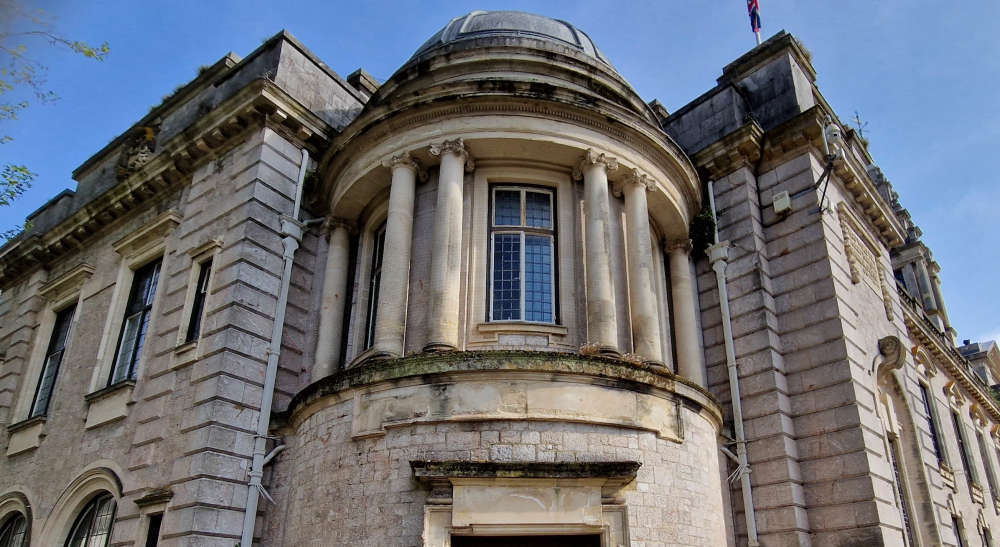
2,300 households affected in area
The government needs to reverse its decision to end the £20-a-week Universal Credit uplift according to a cross-party motion passed by East Devon District Council (EDDC).
The boost to payments, which began in March last year to help with the financial pressures of the pandemic, ended on October 6. The government’s decision has proved divisive and has come under criticism from across the political spectrum, including from many Conservative MPs. Tory councillors on Exeter City Council voted with other parties this week in support of a motion to ask the government to review the decision.
However, some people have defended the switch to pre-pandemic rates, saying the country can’t afford to continue with the uplift. According to the Institute for Fiscal Studies, a think tank, making the uplift permanent would cost taxpayers around £6 billion a year.
Latest figures show more than 2,300 households are on Universal Credit across East Devon. Earlier this year an analysis by the Trade Union Congress, a federation of trade unions, predicted the south west would have the highest proportion of low-income workers affected by a £20-a-week cut.
Following a vote at a full council meeting this week, East Devon councillors agreed to write to the prime minister and the chancellor asking them to re-introduce the £20 payment “as a matter of urgency to the thousands of individuals, families and their children in East Devon that will be adversely affected by this cut in financial support to the most vulnerable.”
Councillor Paul Millar (Labour, Exmouth Halsdon, pictured below), who introduced the motion, told the council: “With rising energy prices somewhat out of the government’s control, this is the one lever government can pull to help the situation.
“This particularly affects residents in our area due to the gulf between wages and rents and house prices in our district.
“Some cynics may argue this letter will achieve absolutely nothing and that may well be the case but I think we have a duty to our residents to say we are doing all we can to try to help this situation and let them know that we are against this ill-timed cut.”

Councillor Megan Armstrong (Independent, Exmouth Halsdon), who chairs the the council’s poverty working panel, said: “If every council in the country writes to the chancellor and prime minister in the same vein we might actually achieve something.”
Councillor Jack Rowland (Independent East Devon Alliance, Seaton), portfolio holder for finance, also supported the motion and called the decrease in Universal Credit “pernicious.” He said the impacts of the cut will be worsened by escalating energy costs, the recent end of the furlough scheme, rising inflation and the increase in national insurance from April next year.
Council Steve Gazzard (Liberal Democrats, Exmouth Withycombe Raleigh) said: “I’m really pleased to be able to give my support to this motion. There is no doubt in my mind whatsoever that there is a crisis looming at this present time.”
He said more and more people have come to him seeking the help of food banks since the end of the uplift and added: “We all know people in our own villages and towns that are absolutely struggling.” Cllr Gazzard said he worried struggling families will “be put through hell” trying to balance bills over the Christmas period.
In passing the motion, the council also agreed to promote employment programmes and to request its cabinet to look at ways of putting additional resources into the council’s anti-poverty strategy.
However, Councillor Colin Brown (Conservative, Dunkeswell and Otterhead), leader of the Conservative group at EDDC, criticised the move and pointed to the government’s recent launch of the Household Support Fund, a £500 million kitty for councils in England to help people meet daily needs such as food, clothing, and utilities. Devon County Council, of which EDDC is a district, received £5 million pounds from the fund at the start of October.
Cllr Brown said: “In view of the fact that this household support fund has now been made available, I cannot agree to writing to the government asking for temporary measures to be extended as this new support fund will be available on a basis of those who are actually in need.”
The motion passed despite most of the council’s Conservative Group abstaining from the vote.
In a statement, the Labour group at EDDC, consisting of councillor Jake Bonetta (Honiton St Michael’s) and Cllr Paul Millar, said the Conservative Group’s failure to support the motion was “cowardly” and “heartless”, adding: “People living in East Devon, so many of whom work already, are facing an unimaginable winter ahead – facing a stark choice between heating, electricity, and food.”
In a separate statement, Cllr Bonnetta praised Conservative councillor Mike Allen (Honiton St Michael’s) for defying his party to vote in support of the motion.
Critics around the country argue the £20 reduction Universal Credit has increased pressure on the 5.8 million people on the benefit in the UK. Last month, homelessness charity Crisis warned the move could put 100,000 private renters at risk of homelessness.
Speaking in September, transport secretary Grant Schapps defended the cut to Universal Credit, saying: “I think most people recognise that if it’s brought in for the pandemic, it’s going to end as we move back to people going back to work and more normal times.”
In a supporting document for the motion passed by EDDC, Cllr Millar argued that savings from the end of the uplift will be lost by councils spending more to provide emergency temporary accommodation and that it would put further strain on the NHS as it deals with the physical and mental impacts of homelessness.
It has been revealed recently that EDDC spent just over £400,000 on temporary accommodation for people in the 2020-21 financial year. The rise, attributed in large part to the impact of the pandemic, is a 140 per cent increase on the 2018-19 financial year when £286,000 was spent.
 City draw at home
City draw at home
 Cars damaged in bid to buy cheaper
Cars damaged in bid to buy cheaper
 Torbay Council considers 'fire and re-hire' in pensions wrangle
Torbay Council considers 'fire and re-hire' in pensions wrangle
 Elderly pedestrian hit by car in Paignton crash
Elderly pedestrian hit by car in Paignton crash
 Top up payments for Ukrainian hosts in North Devon
Top up payments for Ukrainian hosts in North Devon
